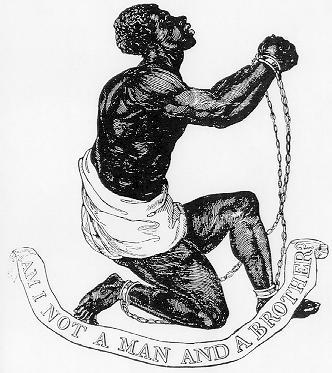
Slavery is not OK if the majority vote to support it.
Image is public domain.
If you read the Wikipedia entry for French political parties, you discover that there are many parties representing a broad spectrum of viewpoints. The upside of this is that you avoid the tyranny of the majority, a problem in democracy where the majority can uphold terrible laws that ignore the interests of the minority. Consider the case of slavery in the US. Does the fact that it was supported by a democracy make it OK? Of course not.
By contrast, in France and many other countries, the tyranny of the majority is avoided because your vote might actually matter (this is part of the reason why the US has such low voter turnouts), as opposed to the US where, for example, Green Party supporters don't have many options. Of course, there's a downside to this, too. When you actually have a democracy, people often vote for groups you don't like. Sometimes it's pretty awful, but that's the price you pay for a real democracy: people with different voices have a say in what's happening.
So what political party might you be aligned with in France? There's a Web site, politest.fr, that has you answer a bunch of questions (some of which are very poorly worded) and it gives you a rough idea of where you might fall in the French political spectrum. However, it's in French, so that's an issue if you don't speak the language. Fortunately, this blog entry has translated the test into English. You can pop back and forth between the French and English version to get an idea of where you stand.
The blog entry that translates the test into English has this interesting bit:
[One French] journalist asserted ... that there was no significant electoral force in American politics on the left side of the political spectrum such as it existed in France. Hearing this almost caused me to fall out of my chair. To equate the US Democratic party with the UDF betrayed an ignorance of the latter—a party with Christian Democratic roots, a moderately conservative sensibility, and mainly provincial bourgeois voting base—and of the former as well. There was, moreover, the implication here that mainstream American Democrats in France would gravitate toward the UDF—which, despite its claimed centrism, was marked in the public mind as moderate right—over the dominant party of the moderate left, the Socialists.
In other words, the author was arguing that many US Democrats in France would vote socialist and he was surprised when a journalist claimed there was no significant electoral force in American politics on the left side of the political spectrum. But he should not have been surprised because, again, the difference here is between who you want to vote for and who you're allowed to vote for. In the US, you really have no choice. There's a right-wing and far right-wing party (relative to most major democracies). There is no "left" option that you can seriously vote for, despite the fact that one third of Americans view socialism favorably.
So go take the politest, using the English translations of the politest, and discover what democracy really means.

